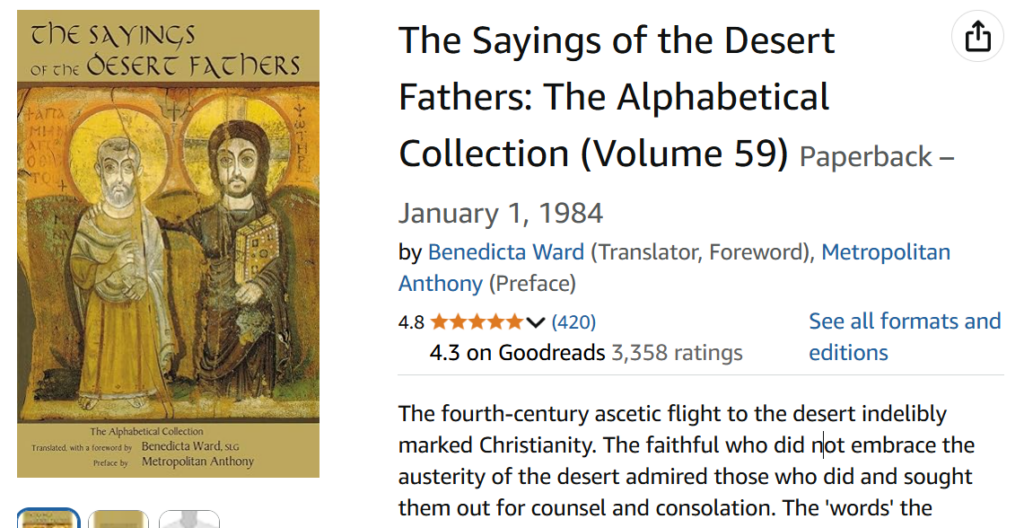Anthony the Great
Saint Anthony the Great is known as the Father of monasticism, and the long ascetical sermon in The Life of Saint Anthony by Saint Athanasius (Sections 16-34), could be called the first monastic Rule.
He was born in Egypt in the village of Coma, near the desert of the Thebaid, in the year 251. Saint Anthony began his ascetical life in a hut not far from his village. By working with his hands, he was able to earn his livelihood and also alms for the poor.
Saint Anthony went into the desert alone. Saint Anthony spent twenty years in complete isolation and constant struggle with the demons, and he finally achieved perfect calm.
In the year 311 there was a fierce persecution against Christians, in the reign of the emperor Maximian. Wishing to suffer with the holy martyrs, Saint Anthony left the desert and went to Alexandria. He openly ministered to those in prison, he was present at the trial and interrogations of the confessors, and accompanying the martyrs to the place of execution.
At the close of the persecution, the saint returned to the desert and continued his exploits. The Lord granted the saint the gift of wonderworking, casting out demons and healing the sick by the power of his prayer. The great crowds of people coming to him disrupted his solitude, and he went off still farther, into the inner desert where he settled atop a high elevation. But the brethren of the monasteries sought him out and asked him to visit their communities.
Saint Anthony spent eighty-five years in the solitary desert. Saint Anthony died peacefully in the year 356, at age 105, and he was buried in the desert by his disciples.
A number of his works have come down to us.
In the year 544 the relics of Saint Anthony the Great were transferred to Alexandria, and after the conquest of Egypt by the Saracens in the seventh century, they were transferred to Constantinople. The holy relics were transferred from Constantinople in the tenth-eleventh centuries to a diocese outside Vienna. In the fifteenth century they were brought to Arles (in France), to the church of Saint Julian.
This book contains many sayings of Saint Anthony the Great:

Anthony the New of Veria
George the New Martyr of Ioannina
Theodosius the Emperor
The Holy Emperor Theodosius the Great during his reign (379-395) delivered a decisive blow to paganism by issuing an edict, under which any sort of service to the pagan gods was considered a violation of the law. The zealous proponent of Orthodoxy promulgated many laws in defense of the Church and against heretics. He convened the Second Ecumenical Council (381).
He ended his life in Milan in 395 at the age of fifty. Saint Theodosius often said that he was more fortunate to be a member of Christ’s holy Church than an emperor.
Leave a Reply